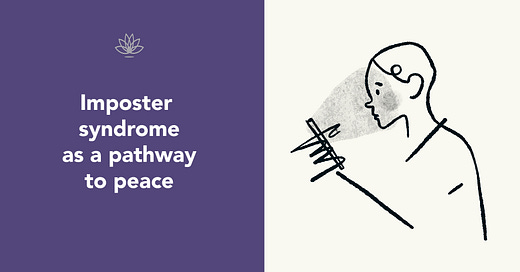In the 1970s, groundbreaking research on high-performing women uncovered a peculiar phenomenon. Despite their impressive track record of academic achievement and prodigious professional success, many of these superstars saw themselves as fraudulent phonies undeserving of their accomplishments.
When asked to explain their extraordinary capabilities, the women attributed little more than sheer luck. As to the high praise regarding their competencies, they dismissed such accolades as evident overestimations of their aptitude.
The astute researchers behind this study, Pauline Clance and Suzanne Imes, coined a remarkably resonant term capturing this condition: imposter syndrome.
The expression quickly gained significance, becoming a popular and poignant way to describe feeling like a sham despite clear evidence to the contrary.
Paradoxically, those who exhibit high levels of intelligence and industriousness are often most susceptible to succumbing to the syndrome. Critical thinking and reserved introspection cause them to doubt their abilities.
Yet beneath the superficial surface of societal signaling, everyone believes they are an imposter. To equate a name and physical form with one’s identity is to live in the deception of the ego. A false self.
Buttressing the ego’s belief system are the foundational convictions that we are here, we can suffer, but it’s not our fault. And each grievance we hold reinforces this certainty.
All the while, the still, small voice for oneness gently reminds us this is not home. This is not where we belong.
Which is why we all feel like imposters. The ego impersonates reality, convincing us our name & body self is truth. What we call “life” and all its experiences mask the authenticity of true being.
Which leads transformative philosophies like A Course in Miracles to challenge our deeply entrenched beliefs:
What if you recognized this world is an hallucination? What if you really understood you made it up? What if you realized that those who seem to walk about in it are wholly unreal? (T-20.VIII.7)
What if, indeed!
Such insightful discernment naturally results in a sense of “deep peace and tremendous release.” Acknowledging our true nature as spirit and the connectedness of everything illuminates the illusory imposter of individuality. Shining away all shadowy deceptions, revealing the euphoric radiance of heaven.
Join me in Thursday’s class where we’ll dive deeper into imposter syndrome, and how we can use its seemingly debilitating grip to guide us to freedom. I look forward to seeing you then.




